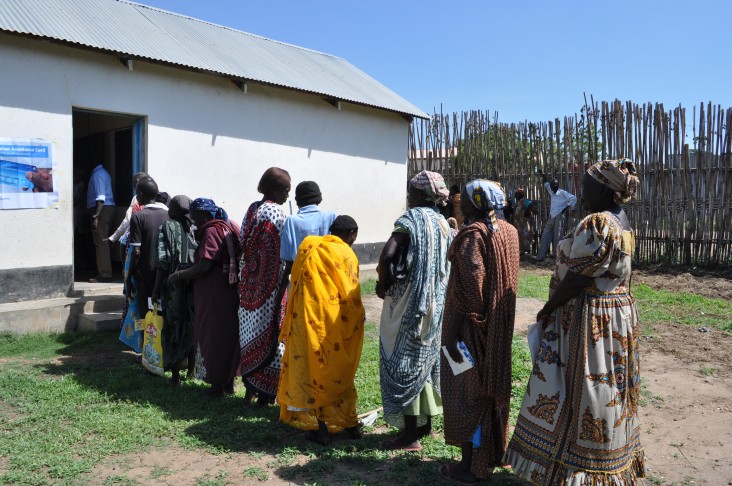
July 2017—For one week each month, Clementina Peter Loku, a 56-year-old widow and resident of South Sudan’s capital city of Juba, walks daily to a local training center to take classes on practical life skills—including nutrition, hygiene promotion, home gardening, entrepreneurship and income generation strategies. In exchange, she receives a monthly cash transfer of approximately $45 that allows her to feed her family.
Since December 2013, South Sudan has suffered from a protracted conflict that has resulted in widespread food insecurity. An estimated 6 million South Sudanese—more than 50 percent of the country’s population—are facing life-threatening hunger. The conflict has also triggered an increasingly severe economic crisis that has spread to urban centers like Juba, where poverty, malnutrition and outbreaks of disease are prevalent.
Faced with high inflation rates, rising prices and few opportunities for work, Loku previously relied on begging for food for her two young grandchildren.
The training program—led by the U.N. World Food Program and World Vision International, with support from USAID’s Office of Food for Peace—reaches around 7,000 of Juba’s most vulnerable individuals, mostly disabled, elderly or mothers with malnourished children. Trainees come from a diverse set of ethnic groups, an important consideration in a country where inter-ethnic violence is prominent.
In addition to training on the importance of a well-balanced diet, the participants learn how to prevent the spread of disease, a common contributing factor to acute malnutrition. “I have taught my grandchildren to get into the habit of washing their hands with soap so that they don’t fall sick,” Loku says.
The monthly cash transfer enables participants to purchase nutritious food that they would otherwise be unable to afford.
“The cash we receive has helped me a lot. When I receive the money, I buy food and sugar for the family, and it has supplemented my modest income from plaiting women’s hair,” says Sarah Natana, a physically disabled 26-year-old single mother of two. Other participants use the skills acquired in the livelihoods training to start small businesses—such as selling cowpeas, tea or charcoal—or a portion of the cash assistance to purchase seeds to grow small, urban vegetable gardens that supplement their families’ diets.
In a city with high crime rates and an increasingly desperate population, the time and location of the cash distributions change each time to ensure the security of both participants and staff. Participants have personalized identification cards to prevent fraud. World Vision even runs a hotline where participants can provide feedback and report abuse.
Although both Loku and Natana are dismayed by the ongoing conflict and the hardship that South Sudanese continue to face, both women are grateful for the assistance and look forward to using the skills and financial support to build a healthy future for their children.
LINKS
Follow @USAIDSouthSudan, on Facebook, on Flickr







Comment
Make a general inquiry or suggest an improvement.